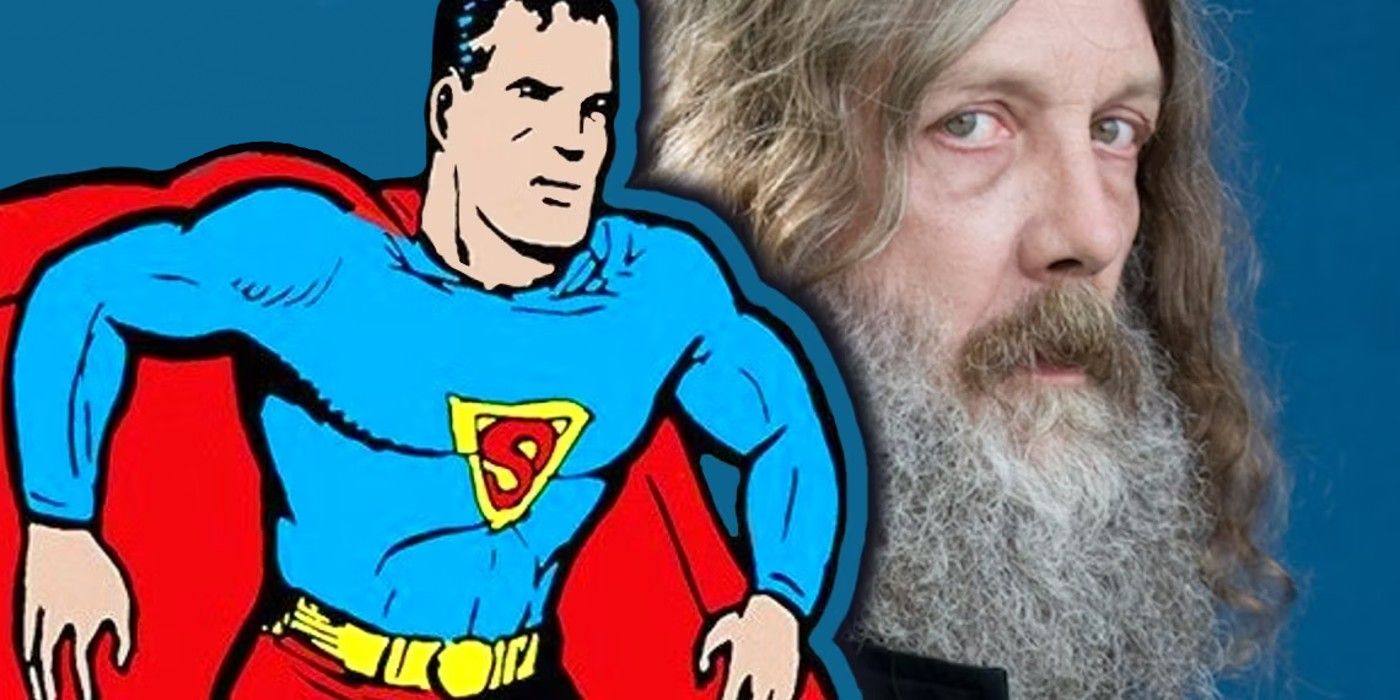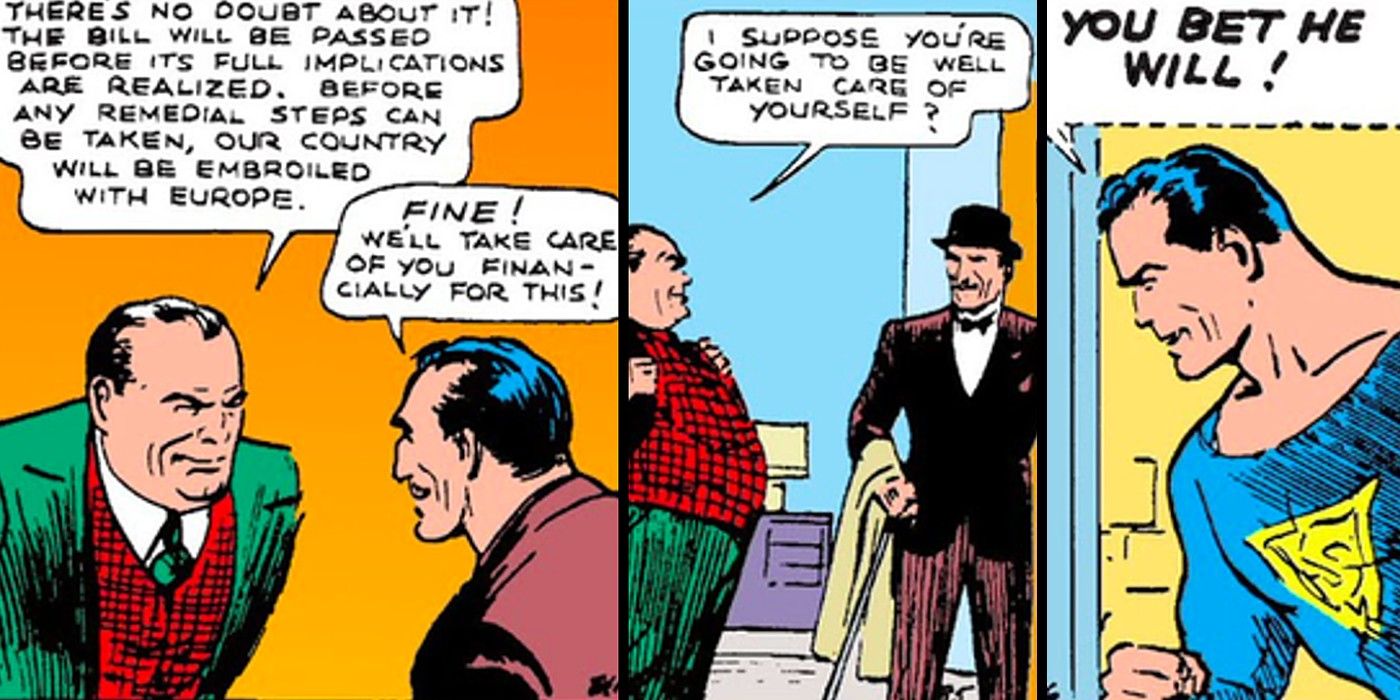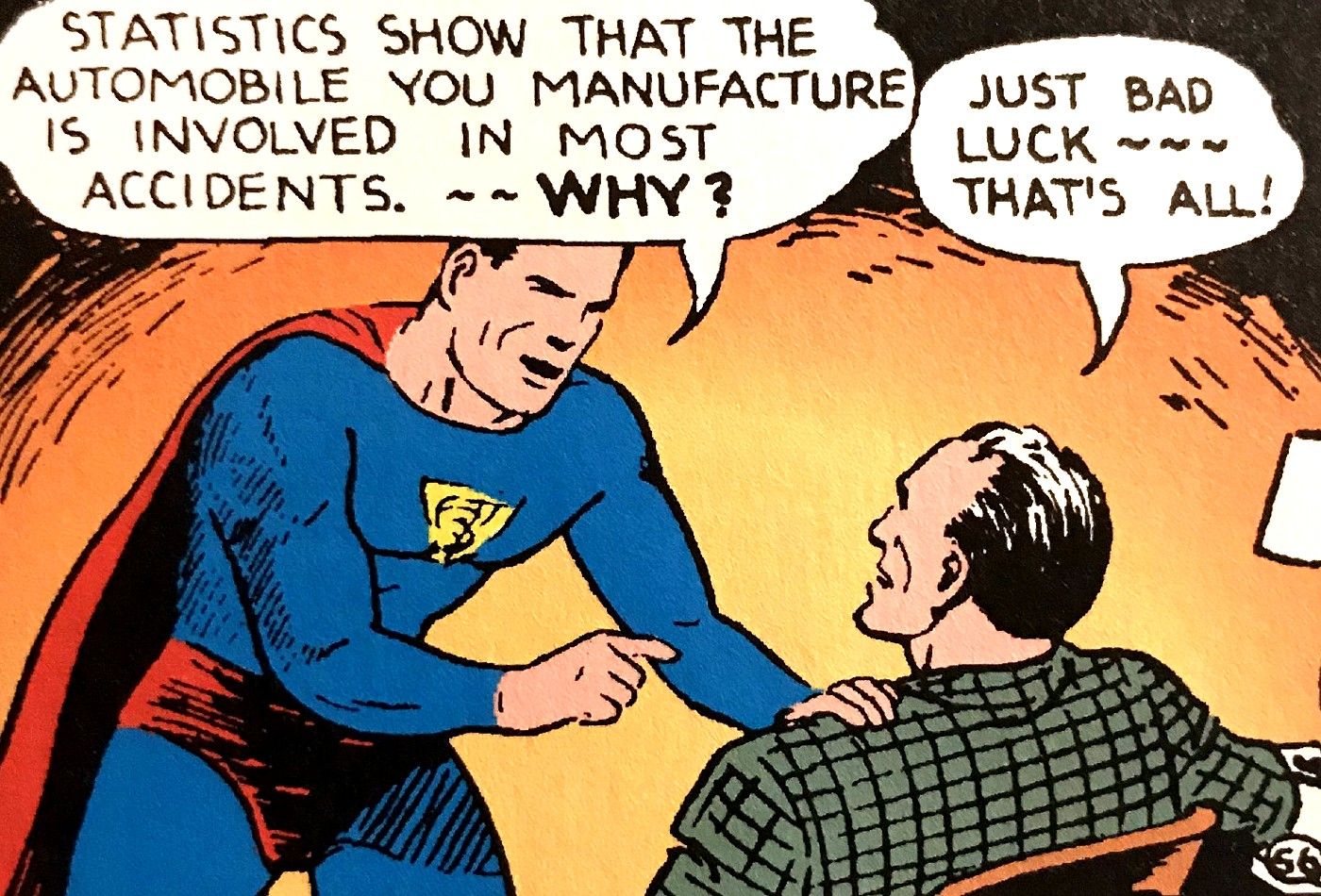Though he may now have disowned his past mainstream work, iconic Superman writer Alan Moore says superheroes used to stand for something. Perennial figures at the top of the box office, Moore says that superheroes have lost touch with their working class origins. Elaborating on his criticism of the industry in an upcoming interview with Screen Rant, Moore points to Superman’s red and blue tights as uniquely compelling historical evidence.
In conversation with Screen Rant, Moore remarks on his childhood reverence for comic book superheroes and provides fascinating commentary on what he views as the more human and relatable foundations of the genre. What is missing from the current formula of blockbuster superhero cinema, he says, is the revolutionary, anti-authoritarian spirit that was a major theme in many of the early stories featuring these characters. Moore triangulates this as a reflection of the Depression-era blue-collar urban areas of America that early comics creators like Siegel and Shuster hailed from. Specifically referring to Superman in the context of his creators’ background, Moore says:
He was an immigrant, like most of them, but he was not forced to dress in the drab browns and grays of most of the other people on the 1930s breadlines. He was wearing bright primary colors and he could leap over the streets that they were having to trudge down looking for work. The early Superman beat up strikebreakers, and threw a slum landlord over the horizon. Obviously, that Superman didn’t last a long while. He was pretty soon taken from his creators and made a much more socially respectable middle-class and right-leaning character.
Superman Was Originally a Social Activist
Created in 1938 by Jerry Siegel and Joe Shuster, Superman is often regarded as the first superhero, modeled on detective and adventure heroes of pulp literature and newspaper comic strips of that era. A colorful figure who fought against gangsters, abusers and corrupt public officials, Superman became the first of many super-powered comic book superheroes. Eventually, Clark Kent even became the subject of three Alan Moore stories, including the wildly influential 'For The Man Who Has Everything.' While Moore’s literary deconstructions during his time at DC in the '80s provided the basis for how superheroes are presented today, he has been consistent in his disgust towards the subject since that period, often pointing out that, beneath their squeaky clean veneer, the very concept of superheroes inherently belies many problematic philosophies that become increasingly obvious the more prominent they are in popular culture.
Superman Has Definitely Changed Over Time
To Moore, Superman's early costume is an artifact of the working class origins that the character was quickly forced to leave behind - wish fulfillment from a very specific time and place in American history. The implication is that, while they may have begun as everyman figures, particularly in the context of the marginalized communities they arose from, as time has moved on, superheroes have evolved into something darker - no longer a wish to escape depravation and fix specific social woes, but rather the assumption that might makes right, and moral authority is derived from individual strength. Moore observes how Superman, who once used his power to challenge unjust authority and corrupt institutions, now more commonly finds himself pitted against monstrous outsiders, upholding the status quo rather than questioning it.
Of course, Moore is speaking generally, and there are counterpoints to his damnation. Indeed, since his recent adoption of the Superman role, Clark's son Jon Kent has explicitly addressed real-life social ills, taking a progressive stance on subjects such as corrupt governments and immigration. However, while some fans accuse modern comics of being overly political, it's unlikely that DC's superheroes will ever again be as specifically and righteously involved in modern social questions as Siegel and Shuster's original vision for Superman.
Whether or not his diagnosis of the industry-at-large fits is up for debate, but Alan Moore's reflections on the meaning of Superman's original design are a fascinating perspective from a comics master - a perspective which he expands on even further in Screen Rant's upcoming interview.



